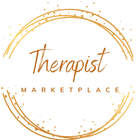As a psychotherapist, you know that each client is unique and requires a customized approach to address their mental health concerns. While therapy sessions are essential, you can enhance the client's experience by incorporating supplementary materials like therapy worksheets, psychoeducation, therapy handouts, templates and therapeutic questionnaires in your practice. Using these resources allows your clients to work on their mental health outside therapy, and it also offers your practice a competitive edge. In this blog, we'll discuss the benefits of incorporating therapy resources in your practice and how they can aid your clients' healing journey.
Helps Clients Retain Information:
Have you ever noticed that clients forget crucial information you discuss during therapy sessions, mainly because they're overwhelmed with emotions and thoughts that consume them during those sessions. Psychoeducational materials or informational handouts (for example techniques of anger management or relaxing techniques for anxiety) and handouts help clients retain information by allowing them to revisit what they learned during the session. The material can also act as a reference point when they're not in therapy, making the learning process easier and consistent.
Not only do therapeutic resources help clients between sessions, but they could also be beneficial during sessions. When clients feel overwhelmed in session, using therapeutic worksheets and handouts can make them more comfortable by giving them something to do. For example, they can take notes which helps them stay focused on the conversation at hand and actuate what they learn during the session.
Encourages Participation:
Resources, such as a core belief worksheet or a worksheet on emotions encourage clients' participation in their therapy sessions. These resources prompt the client to reflect on their mental health and offer insights that can develop through the session. Furthermore, the therapy handouts offer structure, which can be very grounding for clients, and offers a sense of achievement and increased self awareness as they gain mastery over the prompts and reflections.
Enhances the Quality of Sessions:
Therapy resources help psychotherapists facilitate conversations with clients and further develop their understanding of their mental health. Resources, such as a thought record or worksheets on identifying triggers can be extremely useful when therapists are trying to understand their clients' struggles and evaluate how they respond to different stimuli. Additionally, by utilizing these resources, therapists can provide clients a safe space to explore and practice making behavioral changes.
Therapy resources are also beneficial to the therapeutic relationship by helping therapists develop trust with their clients. When encouraging clients to use supplementary materials in between sessions, they create a sense of collaboration and partnership that helps foster the therapeutic bond.
Therapy Resources are Cost-Effective:
Integrating therapy resources in your practice is also cost-effective. Compared to physical therapy workbooks, worksheets and other materials, these can be printed out and customized for each individual client. Offering your clients resources has the potential to reduce the time spent in therapy sessions, and increase the number of people you are able to help successfully.
Enhances Communication:
As a psychotherapist, communication is vital in therapy sessions. Therapy resources serve as a complement to your communication style. During therapy sessions, some clients might struggle to put their thoughts and feelings into words. In this case, a resource such as a feeling chart for adults, or values clarification worksheets can help. Clients can easily identify their emotion and express it on paper, which encourages dialogue with their psychotherapist.
Creates a Customized Experience:
Each client's journey towards recovery is unique. Therapy resources allow you to customize the client's experience by tapping into their different learning styles and preferences. By using various therapy worksheets, resources and therapy activities you can personalize your practice and create an immersive and tailored environment for each client.
Incorporating Therapy Resources in Your Practice:
As you can see, incorporating therapy resources into your practice has plenty of advantages for both the client and therapist. To make sure that you're making the most out of these tools, here are a few tips to keep in mind when utilizing them:
- Select materials based on the individual needs of your clients;
- Provide materials in a way that is nonjudgmental and encouraging;
- Encourage clients to take ownership of their treatment process by using the resources regularly;
- Incorporate activities that make the therapeutic material more interactive, such as having your clients draw out their feelings or use metaphors for difficult emotions.
By utilizing these tips, you can help make therapy resources an integral part of your practice, allowing you to provide a more comprehensive and effective treatment plan for your clients.
Using therapy resources in your practice can greatly improve the quality of care that you offer. It's an excellent way to foster a strong therapeutic relationship with your clients, as well as encouraging them to take ownership of their mental health and become more involved in their treatment process. If you're looking for ways to make your practice stand out, incorporating therapy resources is a great way to do so.
Are you using therapy resources with your clients? Let us know by sharing your experiences on our social media page! We'd love to hear from you.

